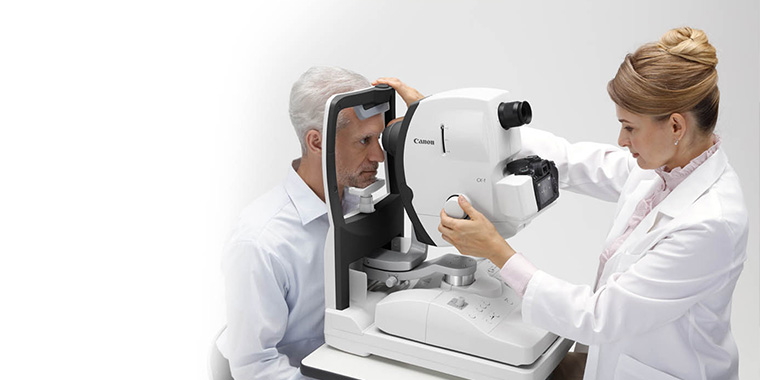Specialist Neurologist Andalusia: Comprehensive Mind Health Services
Wiki Article
Is Refractive Surgical Procedure Right for You? Factors to Think About for Better Eyecare
In the world of eye treatment, the choice to go through refractive surgical procedure is a substantial one that requires thoughtful consideration. As individuals look for clearness and freedom from the constraints of corrective lenses, many factors come into play when establishing the viability of such a procedure. From the complexities of one's eye wellness to the intricacies of individual assumptions and everyday routines, each facet holds value in the broader landscape of refractive surgery candidacy. By evaluating these crucial elements with care and precision, a clearer course in the direction of educated decision-making arises.Eye Wellness Examination
When thinking about refractive surgical treatment, an extensive eye health evaluation is essential to assess the viability of the procedure for each individual. cardiologist andalusia. This evaluation entails a collection of tests and examinations carried out by an eye care specialist to figure out the overall health of the eyes, the existence of any hidden conditions, and the security of the refractive errorThroughout the examination, various elements are thought about, such as the person's case history, present eye prescription, corneal density, pupil size, and tear film high quality. These analyses help to determine any type of contraindications to refractive surgical treatment, such as corneal abnormalities, cataracts, or neglected eye infections. In addition, the examination assists to take care of patient assumptions concerning the possible results of the surgery based upon their unique eye characteristics.
Eventually, the eye health and wellness evaluation is important in making sure the safety and security and efficiency of refractive surgery, as it offers useful insights into the individual's eye wellness condition and aids determine the most suitable treatment options for achieving optimum aesthetic end results. (eye doctors in andalusia)
Way Of Life Evaluation
A detailed way of life assessment is important in identifying the viability of refractive surgery for a person's visual modification needs. Way of life factors such as profession, leisure activities, and daily tasks play an essential duty in the decision-making process concerning refractive surgical procedure.Additionally, way of living habits such as sports engagement, outdoor tasks, and even skincare routines can affect the recovery process and overall success of refractive surgical treatment. For instance, individuals who take part in contact sporting activities might require to take additional preventative measures to safeguard their eyes during the recuperation period. Furthermore, individuals with substantial sun direct exposure might require extra post-operative care to prevent problems. By performing a detailed lifestyle evaluation, eye care experts can tailor their suggestions and treatment plans to meet the distinct needs of each client, ultimately resulting in improved visual outcomes and satisfaction.
Assumption Alignment

Setting reasonable assumptions includes extensive pre-operative discussions in between the patient and the eye doctor. The surgeon needs to transparently interact the potential threats, advantages, and limitations of the treatment (cardiologist andalusia). Patients need to comprehend that while numerous people attain 20/20 vision or better adhering to refractive surgical procedure, some may still require glasses for andalusia pediatrics certain tasks like reading or driving at evening. Managing these assumptions helps stop disappointment and frustration post-surgery, resulting in an extra positive general experience for the person.
Risk Analysis

Elements that might increase the danger of difficulties include age, specific clinical conditions like autoimmune illness, unpredictable vision prescription, thin corneas, and unrealistic individual expectations. Furthermore, selecting a experienced and competent specialist, adhering to pre and post-operative care instructions carefully, and divulging any kind of relevant case history can assist alleviate threats.
To decrease the likelihood of problems, eye doctors perform thorough pre-operative evaluations to determine any type of contraindications to surgical treatment. They likewise review the possible threats and advantages with people throughout the consultation procedure. By participating in open communication and shared decision-making, both the eye doctor and the client can function together to determine if refractive surgical treatment is the right choice based on individual threat profiles and desired results.
Examination Value
Thinking about the important duty of educated decision-making in examining threats and possible difficulties in refractive surgery, the consultation procedure holds substantial value in directing patients in the direction of optimum results. During the appointment, the eye doctor assesses the person's eye health and wellness, refractive errors, and total viability for surgery. This first evaluation is essential in determining one of the most suitable treatment for each person, taking into account factors such as corneal density, pupil dimension, and existing eye conditions.Additionally, the assessment acts as a chance for people to discuss their assumptions, issues, and any kind of concerns they might have concerning the surgical procedure. Clear communication in between the client and the doctor is important to guarantee sensible expectations and a complete understanding of the potential dangers and advantages involved.
Furthermore, the appointment allows the specialist to explain the different medical options offered, their corresponding end results, and the post-operative care needed. This extensive conversation encourages patients to make knowledgeable choices concerning their eye care, resulting in much better contentment and outcomes post-surgery.
Conclusion
In final thought, people taking into consideration refractive surgery should go through a detailed eye health and wellness analysis, assess their lifestyle practices, align their expectations with potential results, evaluate the connected dangers, and prioritize appointments with eye treatment specialists. These variables play an essential function in figuring out the viability of refractive surgical treatment for every individual, guaranteeing optimal outcomes and complete satisfaction with the procedure.Patients taking into consideration refractive surgical procedure usually have high assumptions relating to the results, expecting excellent vision without the demand for glasses or get in touch with lenses. While refractive surgical treatment can significantly improve vision and reduce dependency on aesthetic help, it is vital for individuals to understand that outcomes might vary based on specific aspects such as the degree of refractive error, corneal density, and overall eye health and wellness.
By involving in open interaction and shared decision-making, both the individual and the ophthalmologist can work with each other to identify if refractive surgery is the appropriate option based on individual threat profiles and wanted results.
Considering the essential function of educated decision-making in examining risks and prospective complications in refractive surgical procedure, the assessment procedure holds significant value in directing people towards optimum outcomes. During the appointment, the ophthalmologist examines the patient's eye health and wellness, refractive mistakes, and overall suitability for surgical procedure.
Report this wiki page